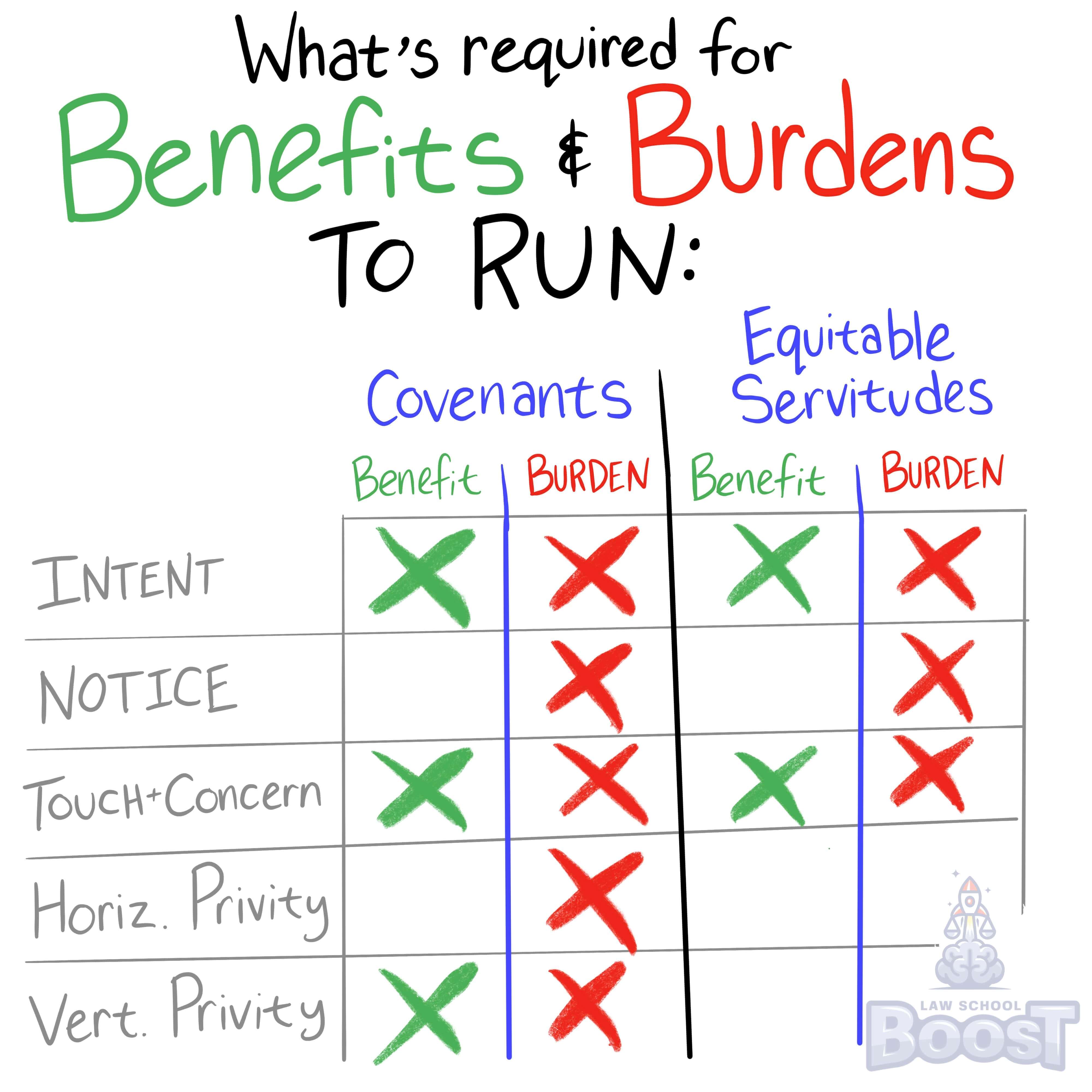😀
Real Property • Real Covenants
PROP#126
Legal Definition
A real covenant is a written promise to do, or not do, something on the land. It runs with the land.
Plain English Explanation
A real covenant is like a written agreement that comes with a piece of property and sticks to it, no matter who owns it. Think of it as a long-term promise tied to the land itself, not just to the person who made the deal. So, when you buy a house with a real covenant, you're taking on that promise, whether you like it or not.
Here’s an example: let’s say the original owner of a property promised the neighbors that no one would ever build a fence higher than 4 feet. That’s a real covenant—it's written down, and it applies to everyone who owns the property afterward. Even if you’re the new owner and you want to build a 10-foot fence, you can't, because that covenant “runs with the land,” meaning it follows the land from owner to owner.
Real covenants can involve doing something (like maintaining a shared driveway) or not doing something (like not painting your house neon green). It’s all about making sure certain promises stick, even after the property changes hands.
Here’s an example: let’s say the original owner of a property promised the neighbors that no one would ever build a fence higher than 4 feet. That’s a real covenant—it's written down, and it applies to everyone who owns the property afterward. Even if you’re the new owner and you want to build a 10-foot fence, you can't, because that covenant “runs with the land,” meaning it follows the land from owner to owner.
Real covenants can involve doing something (like maintaining a shared driveway) or not doing something (like not painting your house neon green). It’s all about making sure certain promises stick, even after the property changes hands.
Visual Aids

Related Concepts
How is an equitable servitude created?
How is an equitable servitude terminated?
How may a covenant be terminated?
In assessing an equitable servitude, when will a benefit run with the land?
In assessing an equitable servitude, when will a burden run with the land?
In assessing real covenants, how will courts treat racially restrictive covenants?
In assessing whether a real covenant will run with the land, what constitutes intent?
In assessing whether a real covenant will run with the land, what constitutes notice?
In assessing whether a real covenant will run with the land, what is horizontal privity?
In assessing whether a real covenant will run with the land, what is touch and concern?
In assessing whether a real covenant will run with the land, what is vertical privity?
What are the 5 equitable defenses against enforcement of an equitable servitude?
What is an equitable servitude?
What is required for a benefit to run with the land?
What is required for a burden to run with the land?
What is the remedy for breach of an equitable servitude?
When may an equitable servitude be implied?
Which covenants always run with the land?


